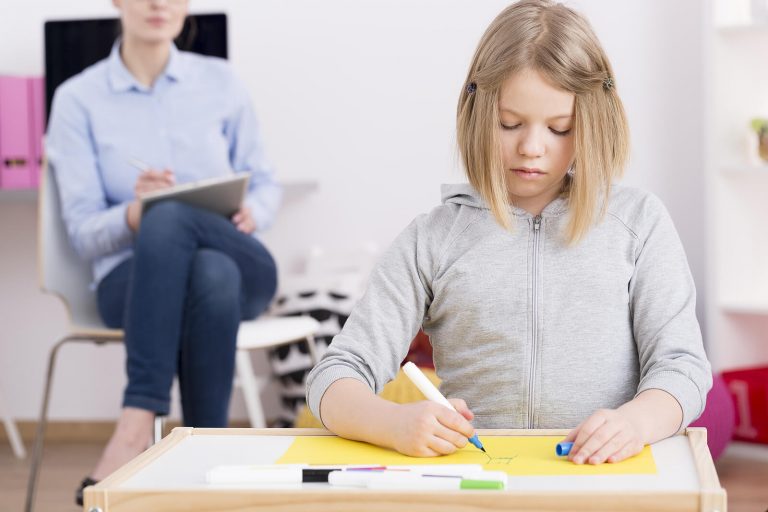Being a parent goes beyond all preconceived expectations. And it is far more than just “parenting”. It is a relationship. When we are able to look at this as a two sided relationship, it takes off a little pressure. The term “parenting” didn’t actually come into existence until the 70’s, and we need to do away with that concept. We need to remember the relational aspect of being a parent, it is not, and cannot simply be a verb. Being in relationship with your child will support your children far more than simply setting boundaries and setting rules and consequences. Don’t get me wrong, boundaries, rules, and consequences have their place in the parent-child relationship, but there needs to be a RELATIONSHIP in order to set those boundaries into place.
Give yourself AND your child a little grace.
Just as in any relationship, we are going to make mistakes. Remember that both you AND your child are going to make mistakes. And that is OKAY. It is part of being human. Remember that you are doing your best. And your child is doing their best. When you go into difficult situations, remembering that your child is a good person who made a mistake (and not just a terrible child) will go a long way. Also, remembering that same sentiment for yourself. Always give yourself and your child the benefit of the doubt and assume the best.
It’s OKAY and important to admit when you are wrong!
The way we repair that mistake and move forward will help determine the strength of our relationships. Admitting you made a mistake does not demean your authority as a parent. It allows space for discussion. And allows space for apology, reconciliation, and learning.
If you made a mistake and admit that mistake to your child, it will not fix the mistake, but will model appropriate behavior for your child to repeat when they make a mistake in the future. Have a discussion surrounding the consequences to your actions and how you will make an effort to change your actions in the future. We cannot change our mistakes in the past, however we CAN change our actions for the future. Be proactive and come up with a plan together to try and make your actions right. It is important to engage in a similar discussion when your child makes a mistake. Your child will likely be more willing to participate in this discussion if they see it modeled by you as their parent.
Validate. Validate. Validate.
Here is your opportunity to connect on a deeper level with your child. Pay attention to the emotions your child may be experiencing. Also pay attention to the emotions YOU are experiencing. If you are in a difficult situation and your child is angry, let them know you understand they are angry. “You are feeling really angry right now and that makes sense. I would be upset too.” Let them experience their emotions without taking those emotions away from them. Simply allowing them to have their emotions and sitting in those big emotions together creates a connection and safe space. It allows them to feel heard and understood and connected. It is not about fixing, its about connecting.
Validating does not mean that you are giving them permission to any behaviors, it is simply giving them a safe space to experience their emotions and connect with them. Letting them know they are not ‘alone’ or ‘crazy’ or ‘bad’ or, you name it, for experiencing these emotions. We as people are constantly searching for connection and belonging, this is one of the many opportunities to experience those with your child. Don’t be afraid to ask your child what they need in this moment, you may be surprised, in a good way, by their responses.
Spend time together.
Think back to all of your relationships-family, friends, and loved ones. What keeps you in those relationships and makes a good relationship? I’m willing to bet shared experiences are among the top of the list. This may sound silly, but spend time with your child. If you have multiple children, make special alone time with each one on top of family time. Get to know them on a deeper level, and vice versa. Do you know each others favorite color? Favorite candy? Favorite game? Most effective coping skill? Spending time together creates positive neural pathways in the brain and a positive bond. This means, putting down the phone, putting away the video games, and spending some face to face time with one another. It can be as simple as learning a new sport together, throwing a ball back and forth, or simply going on a walk. They may be initially outwardly annoyed they have to leave their friends or games and in the same breath will be a positive message and experience for them overall. If and when this becomes a regular occurrence, there will likely be less push back. Your act of initiating this time together communicates to your child they are important to you and worth your time.
REMEMBER:
It’s not easy being a parent and if you’re putting in the effort, you’re rocking it. If you’re trying to figure out if you’re giving it your best effort, the fact you are reading this right now shows you are putting in the extra effort. Be a parent who is in relationship, not acting out a verb. Good luck, keep learning, YOU’VE GOT THIS.
Written by Michele Flynn, MA, LPCC, BCN






